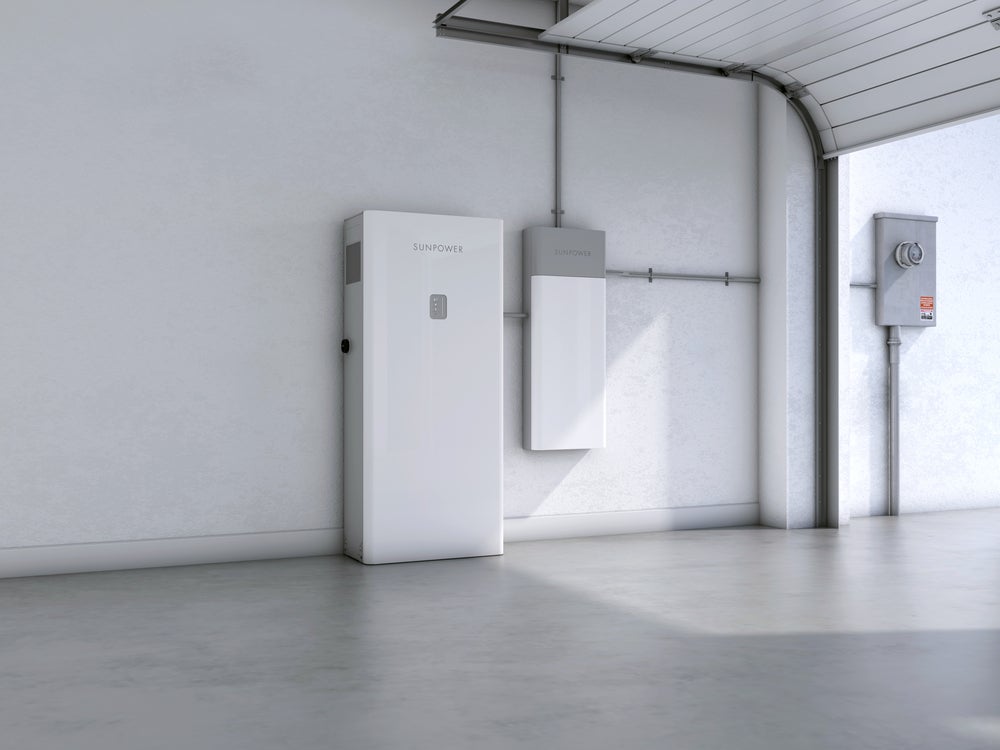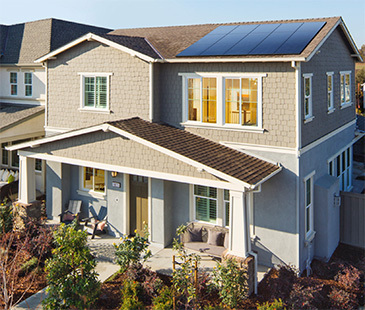
In this ongoing series, we’re looking at how people across the United States are finding new ways to save money and curb carbon emissions with clean energy through the Inflation Reduction Act. In this scenario, a couple in California is interested in adding a solar battery to their rooftop solar system to ensure resilience during power outages. But would the investment pay off?
Kate and her husband, Sam, live in a suburban neighborhood in Stockton outside of San Francisco. They’ve experienced a number of blackouts this year. In fact, the power outages got so bad over the summer that the food in their refrigerator spoiled. Kate is a nurse at the local hospital but Sam works from home and the summer has been tough on him. When the electricity was out for three days straight during a late summer heat wave, he finally decided something had to give.
When Kate and Sam bought their house two years ago, they were happy to see that the previous owners had recently installed SunPower solar panels on the roof. The 10 kW system has drastically cut down their utility bill, making it possible to put more money into savings. While chatting with a neighbor down their street, the couple also learned that SunPower’s SunVault® storage system can be used to generate further energy savings.
SunVault gives homeowners the option to choose what they want to do with their excess power. While storing it for grid failures is certainly the most talked about feature, the solar storage system can also be activated during peak demand times to cover additional electricity fees. This function coupled with its ability to kick in when the power goes out has made SunVault a very attractive clean energy solution for Kate and Sam.
Kate has seen the massive investment in backup generators that the hospital had to make to keep the power on. Adding energy storage to her home’s solar system always seemed out of reach financially. But she heard about the passage of the Inflation Reduction Act on the way to work and now she’s wondering if the incentives might help their situation. She and Sam are willing to use at least part of their $300-400 a month savings from solar power if solar storage can ensure they’ll never lose power.
How might the IRA help them realize their goal of solar + storage?
Let’s look at the numbers. To get the most out of their 10 kW solar system, Kate and Sam would need to invest in a 13 kWh energy storage system. Fortunately, their SunPower solar panels pair well with the SunPower SunVault solar battery, which ensures seamless transfers from grid power to battery power and back again.
SunVault lets customers set their own preferences on whether to store energy for later use or send it back to the grid for even greater savings. They can choose to always have enough backup power, use the stored power to charge an electric vehicle, or share any excess with the grid when their solar is really churning, which happens frequently in the long days of summer.

The IRA provides for a 30% tax credit on the purchase of an energy storage system. How much would that save Kate and Sam?
SunVault cost (including installation): $18,000
30% Investment Tax Credit: $12,600
How long would it take Kate and Sam to see a return on their investment in energy storage?
Current annual savings with solar: $4,500
Additional savings with energy storage: $60
Monthly loan for energy storage: $90
Kate and Sam decide that ensuring their power never fails is worth the small monthly investment, especially as California moves toward a zero net energy future.
Learn more about energy storage and calculate your backup potential by visiting our Solar Battery page.

